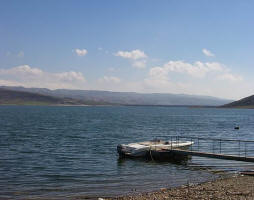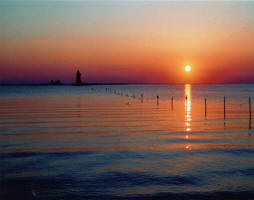 Blue Peace approach is the way to go
Blue Peace approach is the way to go
The Middle East is conspicuous for almost total absence of cooperation over shared rivers and aquifers.
Since the UN declared 2013 as the International Year for Water Cooperation, the World Water Day on March 22 assumes a special significance this year.
Empirical evidence indicates that where countries cooperate over shared rivers, lakes and other water bodies, they enjoy peace and prosperity. Conversely, where countries do not enter into cooperation for collaborative development of shared water resources, they tend to experience tensions and conflicts.
There are about 100 shared water bodies in Europe and North America. Most of them are covered by regional water cooperation arrangements. The commissions to protect Rhine and Danube rivers in Europe, Colorado river between the US and Mexico and the Great Lakes between the US and Canada, the European Union (EU) Framework Directive for continental cooperation to improve the quality of all water resources and the Helsinki agreement, promoting regional water cooperation, are all well known. All countries which are actively involved in implementing these and other smaller agreements enjoy friendly and peaceful relations.
In Africa, all riparian countries sharing the Senegal river basin are engaged in multi-fold cooperation and enjoy peaceful relations. On the other hand, the Lake Chad Basin Commission agreement is weak and the Nile Basin Initiative is confined to technical cooperation. There are tensions and conflicts between Sudan and South Sudan and occasional sabre-rattling between Egypt and Ethiopia. There are constant tensions and at times violent conflicts in 35 out of Africa’s 50 shared basins, where the countries have not entered into water cooperation arrangements.
The Middle East is conspicuous for almost total absence of cooperation over shared rivers and aquifers. There are merely water allocation agreements between Iraq, Syria and Turkey for Tigris and Euphrates, between Syria and Lebanon for Orontes, Jordan and Syria over Yarmouk river and between Jordan and Israel over the Jordan river. Cooperation between Iraq, Syria and Turkey has not gone beyond meetings of officials and training programmes. The Joint Water Committee between Israel and the Palestinian National Authority (PNA) is defunct.
In the absence of cooperation, water bodies in the region have suffered badly.
The Yarmouk river declined from 600mcm (million cubic metres) to about 250-300mcm per year, while the Jordan River from 1,300mcm to 100mcm in the last 50 years. The Ceyhan and Seyhan rivers in Turkey, which former president Turgut Ozal had proposed to provide water to the Gulf countries, no longer have any surplus.
The water level in the Dead Sea dropped from 390 metres below sea level in the 1960s to 420 metres below sea level at present and will be 450 metres below sea level by 2040. The water surface area has shrunk by a third, from 950 square kilometres to 637 square kilometres.
The renewable freshwater resources in the Mountain Aquifer, shared by Israel and the Palestinian Territories, at the time of the Oslo Accords, have been reduced by 7 per cent from 1993 to 2010 and in the Western Galilee Aquifer by 15-20 per cent.
If these trends continue for the next 40-50 years, the Middle East will face serious humanitarian crisis.
The only alternative is Blue Peace, whereby water is converted from a cause of potential conflict to an instrument of cooperation. The Blue Peace approach calls for engagement of the top political leaders in promoting water cooperation, establishing sustained mechanisms for regional cooperation and using regional cooperation mechanisms to agree on trade-offs, joint investment programmes and joint development and dissemination of modern technologies for renewing water resources.
Some actions can be initiated immediately, without any significant political or economic costs.
• Turkey and Iraq often make different claims about the actual flow of Euphrates River. It should be possible to install monitoring stations jointly managed by Turkey and Iraq on the Turkish side of the Turkey-Syria border and the Iraqi side of the Syria-Iraq border with technical personnel from both countries and agreed standards of gauging stations and calibration software. Once Syria has a stable state, it can join this arrangement.
• Turkey has launched an ambitious 20 billion euro (Dh94.68 billion) programme to upgrade the quality of its fresh water bodies in cooperation with the EU. Iraq, Lebanon, Jordan and eventually Syria can enter into cooperation with Turkey to benefit from its technology and management capacities.
• Saudi Arabia, Iran, Turkey, Qatar and the UAE can enter into an agreement to use their respective strengths in the region to persuade the Al Assad regime as well as its opponents not to damage the water infrastructure in the current conflict and also to grant Red Cross safe access to repair damaged water infrastructure.
• Scientific institutions across the Middle East can begin joint programmes, in partnership with EU and the US, for developing new technologies such as reverse osmosis, nano-technology and solar technology for water treatment.
In order to bring about cohesion in such efforts, it is necessary to establish a Cooperation Council for the Sustainable Management of Water Resources. Iraq, Jordan, Lebanon and Turkey can form such a Council to be expanded to include Syria when possible and to have relationship with the PNA and Gulf states in the future. Such a phased evolution of the cooperation council will gradually foster cooperation and joint investment programmes — not only in the water sector, but also in combating climate change and drought, agriculture, health, disaster response, tourism and infrastructure. It will eventually lead to sustained peace, friendship and prosperity for the people of the Middle East.
| Contact information |
Sundeep Waslekar is president of Strategic Foresight Group, a think-tank based in Mumbai with global reach.
|
|---|---|
| News type | Inbrief |
| File link |
http://gulfnews.com/opinions/columnists/blue-peace-approach-is-the-way-to-go-1.1161237 |
| Source of information | Gulf News/ Sundeep Waslekar is president of Strategic Foresight Group, a think-tank based in Mumbai with global reach. |
| Keyword(s) | drought, water scarcity, drought policy, shared water resources, transboundary water resources |
| Subject(s) | AGRICULTURE , ANALYSIS AND TESTS , CHARACTERISTICAL PARAMETERS OF WATERS AND SLUDGES , DRINKING WATER , DRINKING WATER AND SANITATION : COMMON PROCESSES OF PURIFICATION AND TREATMENT , ENERGY , FINANCE-ECONOMY , HYDRAULICS - HYDROLOGY , INFORMATION - COMPUTER SCIENCES , INFRASTRUCTURES , NATURAL MEDIUM , POLICY-WATER POLICY AND WATER MANAGEMENT , RISKS AND CLIMATOLOGY , WATER DEMAND |
| Relation | http://www.emwis.net/thematicdirs/news/2013/03/regional-council-regulate-shared-water-resources-water-experts-and-policy-makers |
| Geographical coverage | Jordan,Turkey,Lebanon,Iraq,Syria, |
| News date | 25/03/2013 |
| Working language(s) | ENGLISH |
 you are not logged in
you are not logged in





